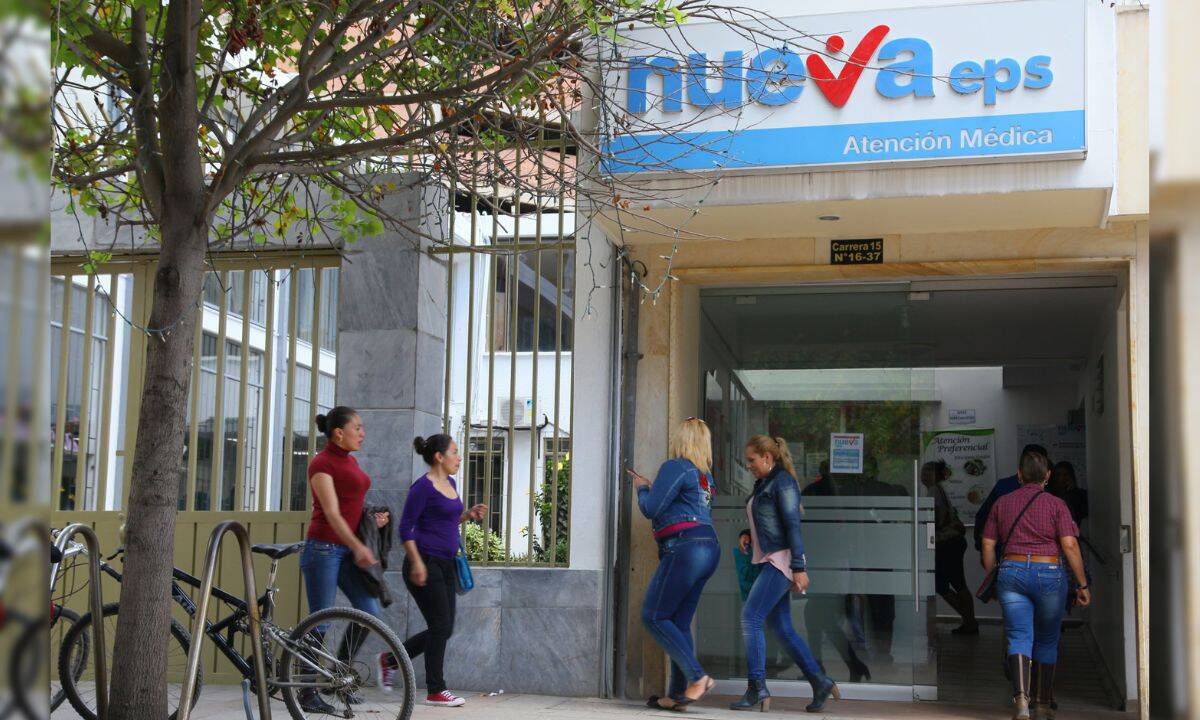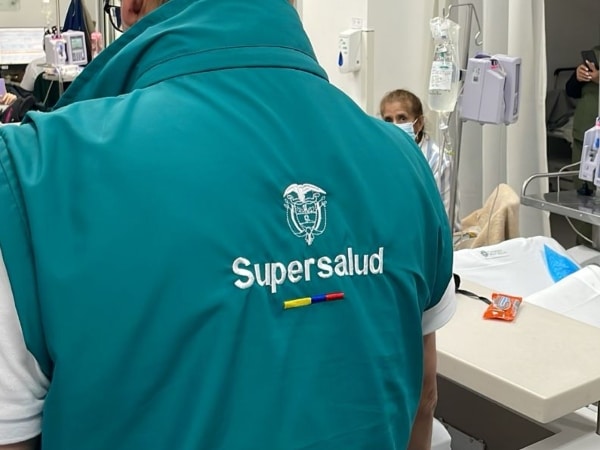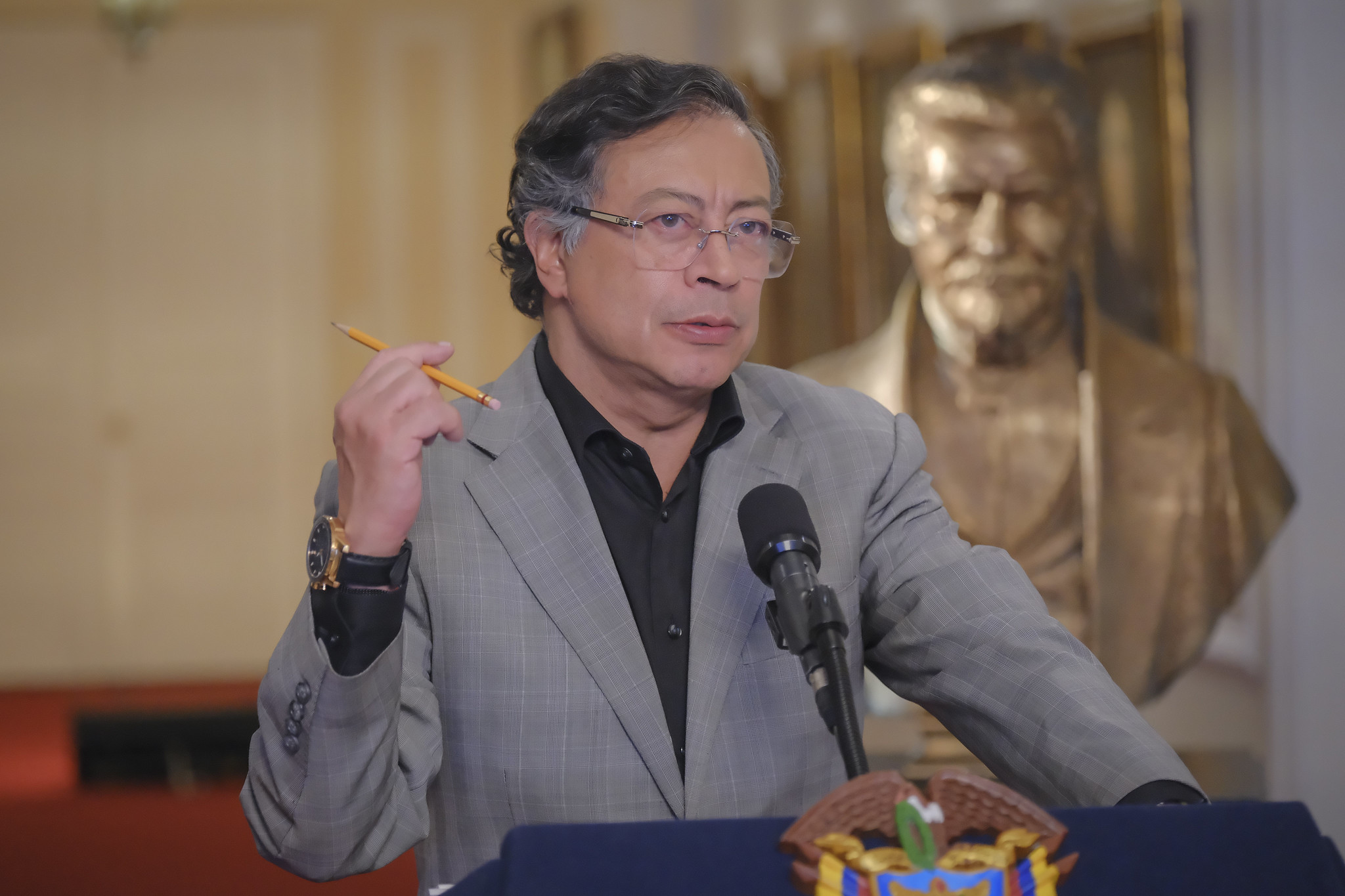Although President Petro defends the intervention of the Nueva EPS, figures and experts reveal that the Government only worsened the problem.

President Gustavo Petro addressed the situation at Nueva EPS again this Friday, asserting that the entity is in the process of recovery and that state intervention seeks to protect its users. However, the reality described by official figures, reports from the National Health Superintendency, user complaints, and expert warnings paints a radically different picture: far from improving, the country's largest insurer is going through its worst period yet.
The contradiction is evident. Since April 3, 2024, when the government ordered the administrative intervention of Nueva EPS—with more than 11 million members—the situation has not only not improved, but has deteriorated on multiple fronts.

Current data reveal that state intervention has not corrected the opacity. Photo: Luis Lizarazo García. EL TIEMPO Archive
Petro recalled that between 1994 and 2022, multiple decrees were issued—including 995, 1492, and 1606—which, he said, relaxed the financial requirements of the EPSs and opened the door to irregular practices. "This policy allowed for the diversion of resources and the liquidation of 130 EPSs, which left hospitals, clinics, and healthcare workers in debt," he stated.
For the president, the consequences were devastating: "Millions of patients did not receive the treatment they needed. This is a genocide perpetrated through public policy in Colombia." The accusation, with enormous political and moral weight, calls into question the way the insurance model was designed and implemented for nearly three decades.
In the specific case of Nueva EPS, Petro was even more forceful. He pointed out that the entity falsified its accounts in 2023 to avoid being intervened. According to his complaint, it reported assets of 6.8 trillion pesos and liabilities of 6.6 trillion pesos, resulting in a net worth of 143 billion pesos. But in reality, he claimed, the insurer was bankrupt: it owed more than 5 trillion pesos to hospitals and had hidden debts amounting to 11.7 trillion pesos.
"What was done was to present falsified figures to show solvency when the EPS was already in a critical situation. What we discovered was a deception of the public and the health system," the president emphasized.

According to experts, the Supersalud (Health Superintendency) currently lacks the tools to resolve the EPS crisis. Photo: Supersalud
Although Petro's complaints point to a known problem that required measures to address it, state intervention in Nueva EPS has failed to correct it. Since the National Health Superintendency assumed control on April 3, 2024, the entity has not submitted certified financial statements for either 2023 or 2024.
The Comptroller General for the Health Sector, Julián Niño, recently explained this in an interview with EL TIEMPO: "Today, the EPS has no financial statements for either 2023 or 2024. Trying to approximate the financial reality without this certified information is very complicated." In other words, the same information gap Petro denounces regarding the past persists during his own administration.
For his part, former Health Minister Alejandro Gaviria also noted that the Comptroller General's Office found accelerated growth in outstanding advances to be legalized during 2025: an additional $6.6 billion between January and June, bringing the total to $15.27 billion. For Gaviria, this situation "compromises institutional liquidity and increases the risk of potential asset losses, especially those exceeding two years and totaling $143 billion."

President Gustavo Petro during his speech this Friday. Photo: Presidency
The Colombian Federation of Rare Diseases also questioned the president's statements. While Petro spoke of the diversion of medicines and supplies to private importers, the Comptroller's report did not reveal such a situation. What it did document were administrative and financial irregularities, most of which occurred during the state intervention.
Luis Jorge Hernández, a professor at the Universidad de los Andes, adds another angle: the deterioration of the user experience. Between January and July 2025, 295,390 complaints were filed against Nueva EPS, confirming that the insurer not only leads the national ranking of complaints but also has one of the highest rates of claim reopening. "This reflects dissatisfaction and serious problems in the provision of services," Hernández points out.
Hospitals and clinics in crisis The most tangible consequence of the crisis is the debt owed to hospitals and clinics. According to the Colombian Association of Hospitals and Clinics (ACHC), the Nueva EPS portfolio now exceeds 5 trillion pesos, with a growth of 800 billion pesos in just six months and a 5.5-point decline in delinquency.
The effects are being felt in regions such as Caldas, Quindío, Risaralda, Meta, and Antioquia, where clinics and hospitals have closed services, suspended contracts, or blocked patient care due to nonpayment. "Today, it's no longer a risk; it's a reality," warned Juan Carlos Giraldo, director of the ACHC.
President Petro's speech aims to point out those historically responsible for the EPS crisis and to denounce recent accounting maneuvers at Nueva EPS. However, the facts reveal that state intervention has neither corrected the opacity nor stabilized the insurer. Users are filing more complaints, clinics are accumulating debt, and financial information remains unavailable.
As former Health Minister Augusto Galán sums up, the outlook is uncertain: "Recovering that without administrative stability, without corporate governance, without a solid organizational culture (...) casts serious doubt on what the future and possible recovery of this New EPS will be."
While the president speaks of "genocide by public policy," the country's largest state-controlled EPS (Healthcare System) is facing its worst moment. The question remains whether the intervention has served to correct the ills Petro denounces or, on the contrary, has exacerbated them.
Environment and Health Journalist
eltiempo



%3Aformat(png)%3Aquality(99)%3Awatermark(f.elconfidencial.com%2Ffile%2Fa73%2Ff85%2Fd17%2Fa73f85d17f0b2300eddff0d114d4ab10.png%2C0%2C275%2C1)%2Ff.elconfidencial.com%2Foriginal%2Ffc7%2F8f3%2F6bf%2Ffc78f36bf02997b52e31c0a63daf91cb.png&w=3840&q=100)
%3Aformat(jpg)%3Aquality(99)%3Awatermark(f.elconfidencial.com%2Ffile%2Fbae%2Feea%2Ffde%2Fbaeeeafde1b3229287b0c008f7602058.png%2C0%2C275%2C1)%2Ff.elconfidencial.com%2Foriginal%2F0b5%2Fb41%2F30b%2F0b5b4130b508351b2c4f6b9ef5d591c3.jpg&w=3840&q=100)